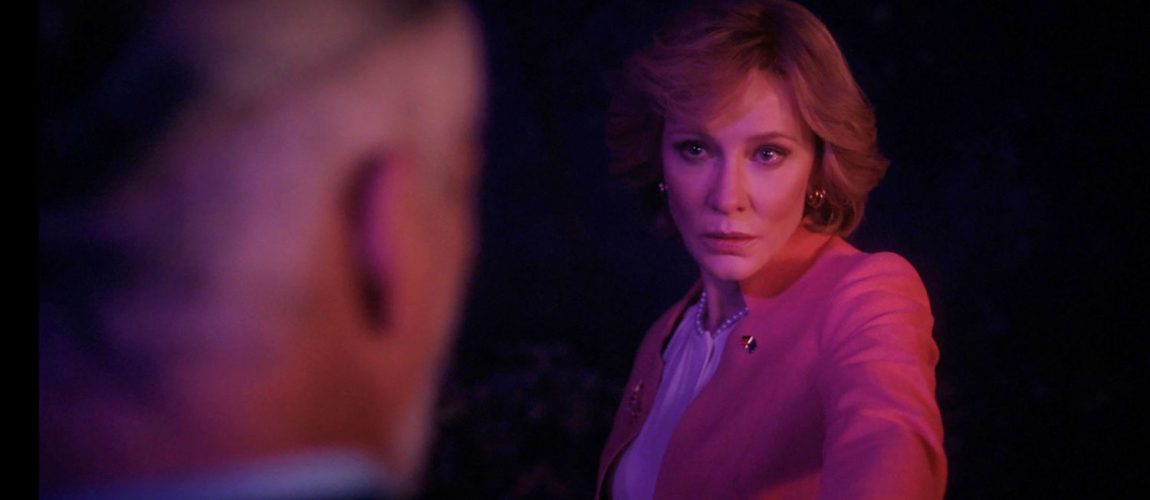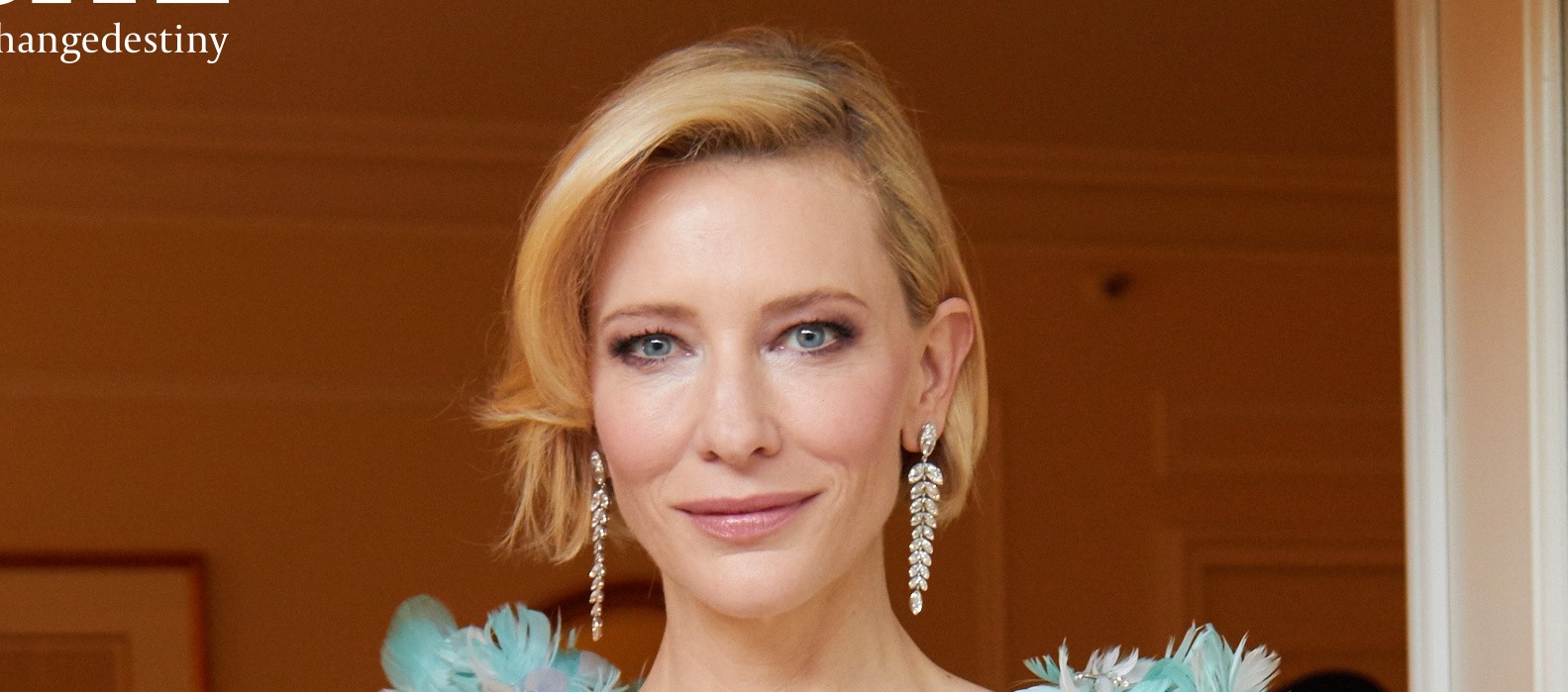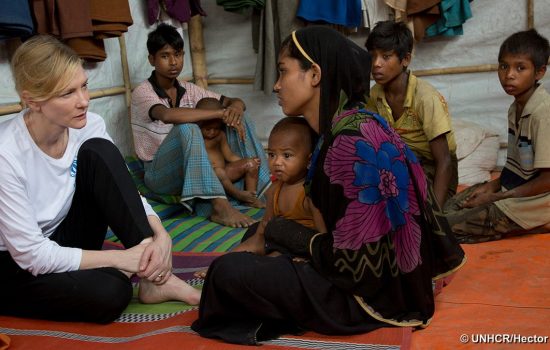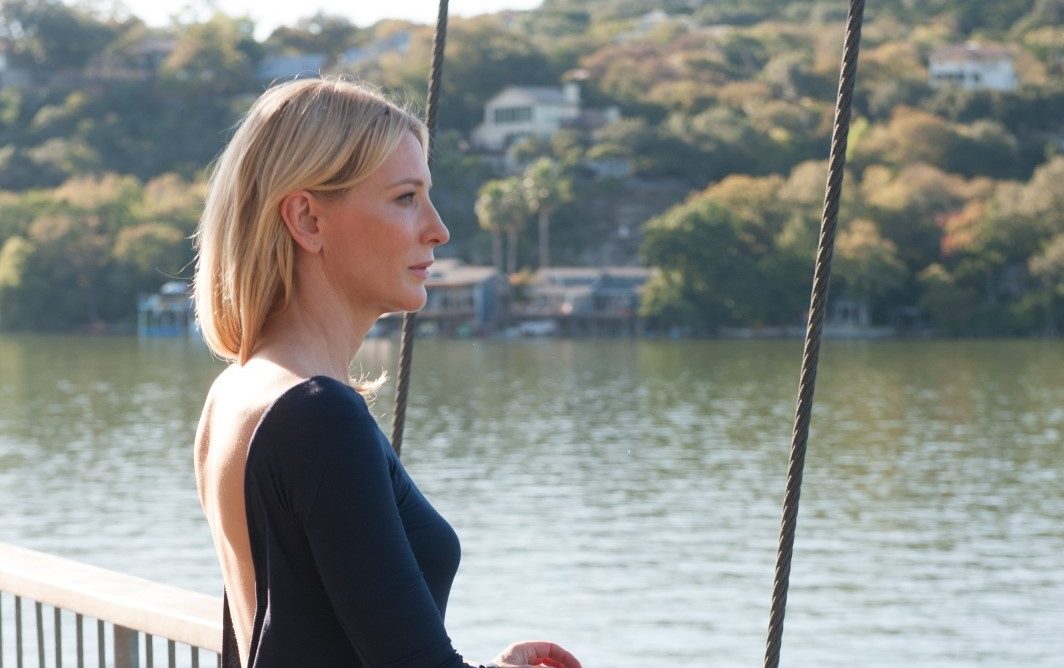DISCLAIMER* and RUMOURS will soon hit the small and big screens. Here are interviews with Cate Blanchett ahead of their releases, as well as for MARION, the short film where she is co-executive producer. On 21 September, she will be honored at San Sebastián International Film Festival which will be followed by a screening of RUMOURS.
Disclaimer* & Rumours
Making Cate Blanchett laugh in conversation — whether it is real or not, as she is a very, very good actor — is wholly satisfying. She gave a great belly laugh when asked “Is it hard to play a woman that no one likes?” Then, ever the pro, she deflected the focus onto her director.
“I think it was more of an exercise in form, for Alfonso Cuarón,” she said of the four-time Oscar-winning director of “Roma” and “Children of Men.”
“It was a challenge as an actor to play someone who didn’t speak, through choice, but who also was prevented from speaking for such a long portion of the story, so that there’s time for this series of multifarious judgments to be made about the character and what had transpired.” Not having the dialogue to express the inner workings of the character was difficult, she said.
Here my cat broke into the Zoom conversation, which was freaky, because “Disclaimer” has cats stalk around the houses of all the main characters throughout.
I longed to ask her what the cats meant but, alas, time is short on these festival press junkets. We spoke instead about the juxtaposition of technology. In the flashbacks woven throughout of events from 20 years prior, it’s all postcards and Nikon cameras. The plot is propelled by a book. Then, in the present, technology supercharges things, and we get pile-on cancellations and catfishing.
Blanchett reflected on this. “When communities were smaller and less global, pieces of information were shared in much slower form, then the notion of people being ostracized took years if not decades to happen or events to come to light.”
Truth itself has become mutable, a major theme of the series. In the past, she said, we had “an understood sense of what was true and what a community believed. Now I think that that has been massively eroded. If you think about Twitter as a platform, I remember talking to journalists about it, saying it was an incredibly important tool for them to get leads to stories. But now those tweets become stories in and of themselves.”It’s a cliché, she added, “but now the sound bite culture actually prevents information or the truth such as it is from being understood. There are so many different perspectives that go to make up the truth and I think that that is what Alfonso is playing with in the series. There are so many points of view that are brought to bear on the events that the story tells.”
The speed of Ravenscroft’s very modern shunning is supposed to make your head spin. “This thing is all about the rapidity of judgment that the audience is invited to make and that the characters in the story make,” all of which takes place with very little information and with no one really asking questions, Blanchett said. Which is ironic, because Ravenscroft is an investigative journalist.“There are very few places where I feel that discussions can take place in a nuanced way anymore,” said Blanchett. “These are very complex situations and relationships that exist and yet we talk about them in very simplistic terms,” illuminating another major theme of the series.
Switching gears to talk about her appearance on the TIFF red carpet in support of “Rumours,” Blanchett said she savoured having a punch line about the Treaty of Maastricht in the movie.
“They had me at hello,” she said of Canadian co-directors Guy Maddin, Evan Johnson and Galen Johnson. “I’ve long been an admirer of Guy’s chutzpah and his creative invention. The collage artist-cum-filmmaker that he is, he’s got such a fantastic sense of theatre and irreverence, he is intensely soulful and personal.”
The film, which was shot in Winnipeg and Budapest, is an absurdist exploration of a G7 conference. Blanchett plays fictional German chancellor Hilda Ortmann, complete with boxy jacket and a hair flip.
Ortmann tries to wrangle the leaders of the free world at a summit where they are stripped of their communication devices, and abandoned by aids and catering staff as they try to compose a draft statement of agreement. Ortmann at one point tries to get the crew to open up by sharing their biggest regrets. That is before they come upon the giant brain in the forest or the resurrected bog monsters. She also has a romantic moment with the Canadian playboy prime minister, who toggles chaotically between melancholy and swagger.
All that political sound and fury, signifying nothing? “We are living through incredibly, impossibly absurd times,” said Blanchett.
“To say they are purely absurd belies the fact of the contravening of basic human rights around the globe, where it seems very little is being done to stop it and to reach consensus to the betterment of the world as a whole,” she added.Maybe it isn’t such a stretch after all. “So the fact that these world leaders find themselves beset upon by bog monsters in Bavaria,
I mean it does feel very close to a documentary at times.

Still from Rumours (from left to right) Nikki Amuka-Bird, Charles Dance, Rolando Ravello, Alicia Vikander, Cate Blanchett, Roy Dupuis, Takehiro Hira, and Denis Ménochet


Marion
When Cate Blanchett received an “urgent, must watch” email with short film Marion by writer-directors Joe Weiland and Finn Constantine attached, she didn’t know quite what to expect. But Blanchett gave it a go and, she told Deadline here in Venice, ended up “literally flown back in my seat.”
Marion, which world premieres at the Venice Film Festival this evening as part of the Orizzonti Short Films International Competition, is a 13-minute story set against the backdrop of La Course Landaise – the French tradition of bull-jumping. It follows the journey of the titular character, a mother who is also one of the only women practicing the sport in France.
Blanchett, who ultimately joined Sienna Miller as an executive producer on the film, told Deadline, “You don’t see something as fully realized as this, and as visceral and as enticing and powerful and memorable… To be in dialogue with this was just something I couldn’t turn down.”
The short packs in a lot, intensely covering Marion’s (Caroline Larbère) preparation, her battle against misogyny and prejudiced attitudes while juggling motherhood and the contentious pursuit of her passion.
Weiland and Constantine shot the movie in Bayonne, France after having tracked down real-life bull jumper Larbère. Constantine said that after reading the script, Larbère told them, “It’s like you’ve been living in my mind.”
Said Blanchett to the filmmakers during our chat, “What I found amazing about it, knowing how rapidly you shot, and also working with someone who was a performer of one kind, not an actor, is that there’s a mythic quality to the film… You’ve used her skill set and her experience, but you’ve elevated it by smashing it up against elements of her life that are not from her direct experience… When I first watched it, I thought, is this a documentary? It had a veracity and a danger of a documentary, yet it had the heart and the pathos of a drama. Directorially, the way you have interwoven those two things is miraculous.”
Also somewhat miraculous is Marion/Larbère’s unscripted run-in with a bull on her first pass, which is captured in the film, and from which she emerged unscathed. While the filmmakers couldn’t have planned for it, they were covering with six cameras on all different lenses because it had to feel cinematic. Blanchett called it “Ridley Scott-level direction on $2.15 in three days.”
Blanchett, who told Deadline she would “totally” be involved in a feature version, turned to the filmmakers, saying, “Seriously, you’re off to the races. I feel it’s such a powerful film in and of itself, and there’s so many tentacles off it that could develop into a feature.”
Source: Toronto Star, Deadline
 Welcome to Cate Blanchett Fan, your prime resource for all things Cate Blanchett. Here you'll find all the latest news, pictures and information. You may know the Academy Award Winner from movies such as Elizabeth, Blue Jasmine, Carol, The Aviator, Lord of The Rings, Thor: Ragnarok, among many others. We hope you enjoy your stay and have fun!
Welcome to Cate Blanchett Fan, your prime resource for all things Cate Blanchett. Here you'll find all the latest news, pictures and information. You may know the Academy Award Winner from movies such as Elizabeth, Blue Jasmine, Carol, The Aviator, Lord of The Rings, Thor: Ragnarok, among many others. We hope you enjoy your stay and have fun! 








 A Manual for Cleaning Women (202?)
A Manual for Cleaning Women (202?) The Seagull (2025)
The Seagull (2025) Bozo Over Roses (2025)
Bozo Over Roses (2025) Black Bag (2025)
Black Bag (2025)  Father Mother Brother Sister (2025)
Father Mother Brother Sister (2025)  Disclaimer (2024)
Disclaimer (2024)  Rumours (2024)
Rumours (2024)  Borderlands (2024)
Borderlands (2024)  The New Boy (2023)
The New Boy (2023) 











